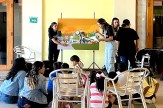In the middle of Boston, he’s growing food for good
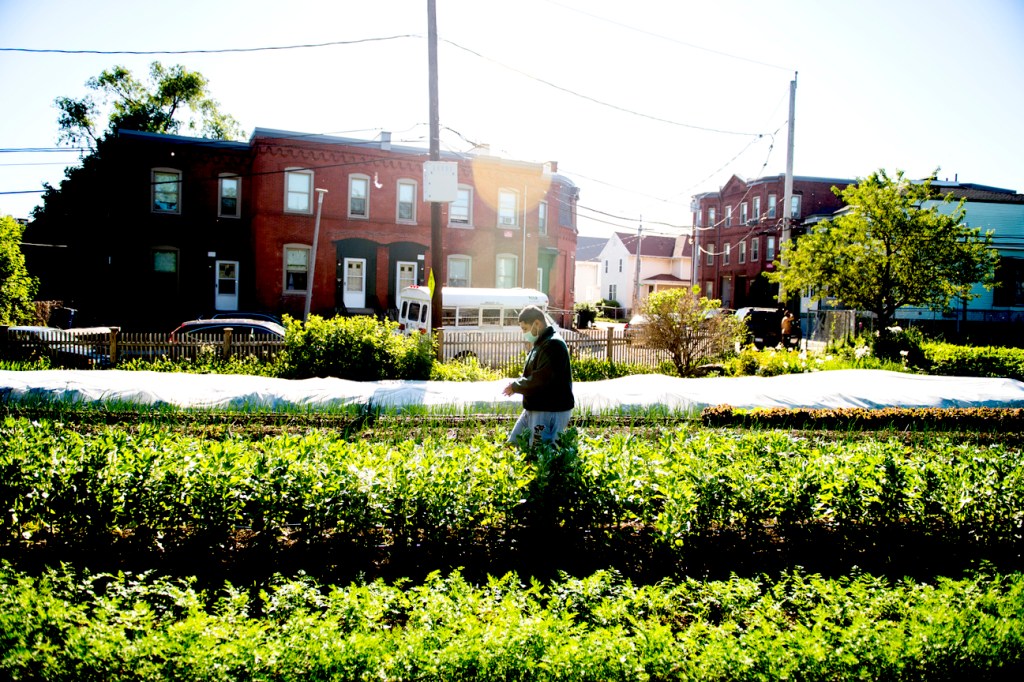
Every morning during the week, Yasser Aponte navigates the tight, densely-packed streets of Boston’s Dorchester neighborhood until the streets suddenly, almost without warning, give way to a lush, two-acre farm. It’s there that Aponte (literally) rolls up his sleeves, and gets to work.
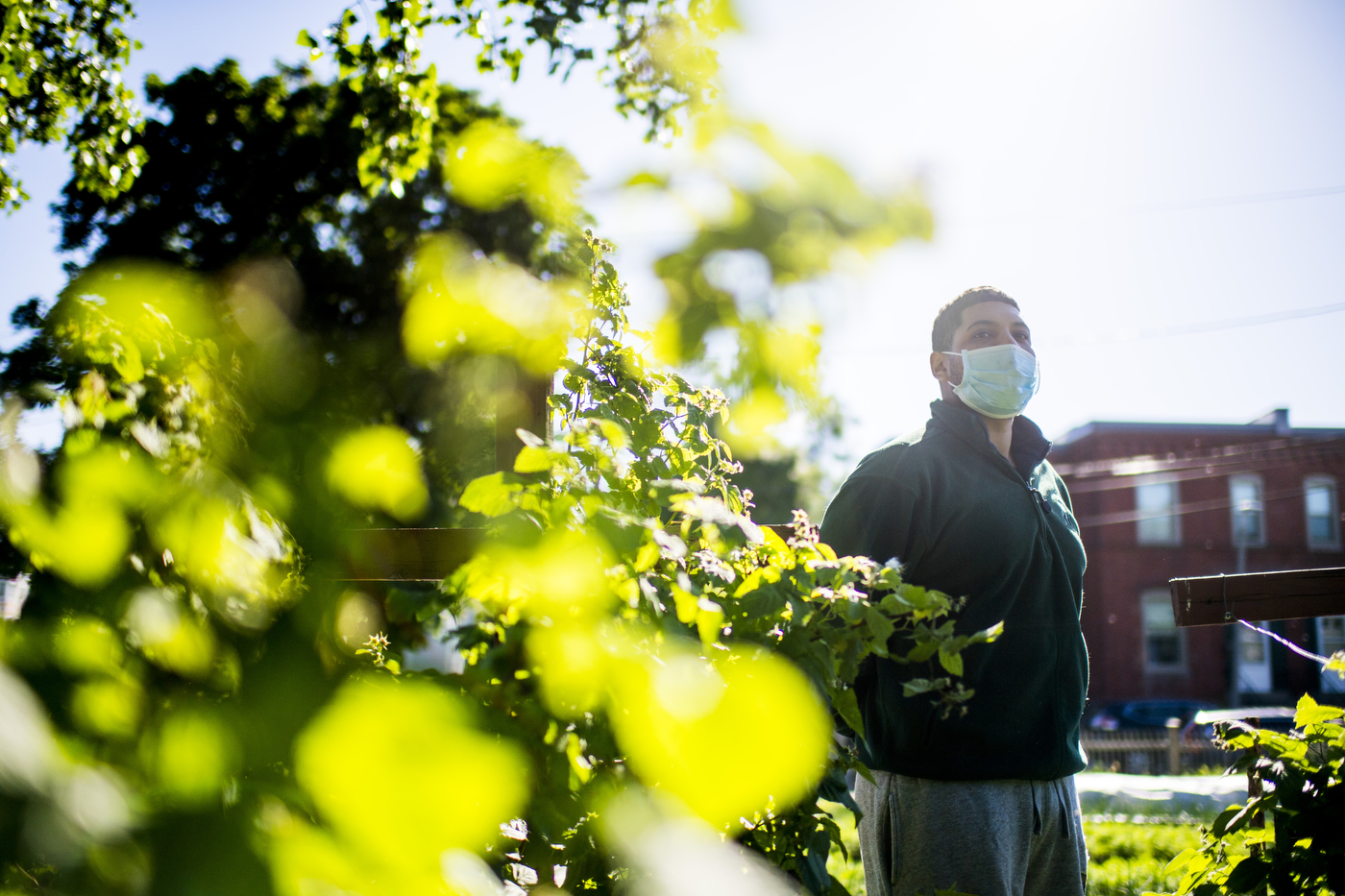
Northeastern student Yasser Aponte has been volunteering with The Food Project for several years. Photo by Matthew Modoono/Northeastern University
Row after tidy row of carrots, snap peas, raspberries, soy beans, spinach, kale, cilantro, beets, arugula, kidney beans, lettuce, and garlic grow languidly in the middle of a cramped, boisterous neighborhood where car horns blare and crushed soda cans jangle down the streets.
Aponte, who is studying international affairs and religious studies at Northeastern, spends his days painstakingly weeding, watering, harvesting, and planting anew the crops on the farm, then he helps distribute them to local residents and businesses.
“It’s taxing work, but it’s rewarding,” he says.
The farm is owned and managed by The Food Project, a non-profit organization that works to create a more sustainable, community-oriented food system. The organization employs 120 teenagers each year to work 70 acres of farmland across Eastern Massachusetts. They grow roughly 200,000 pounds of fresh produce each year that the organization sells affordably to local restaurants and directly to residents at farmers markets in the neighborhood.
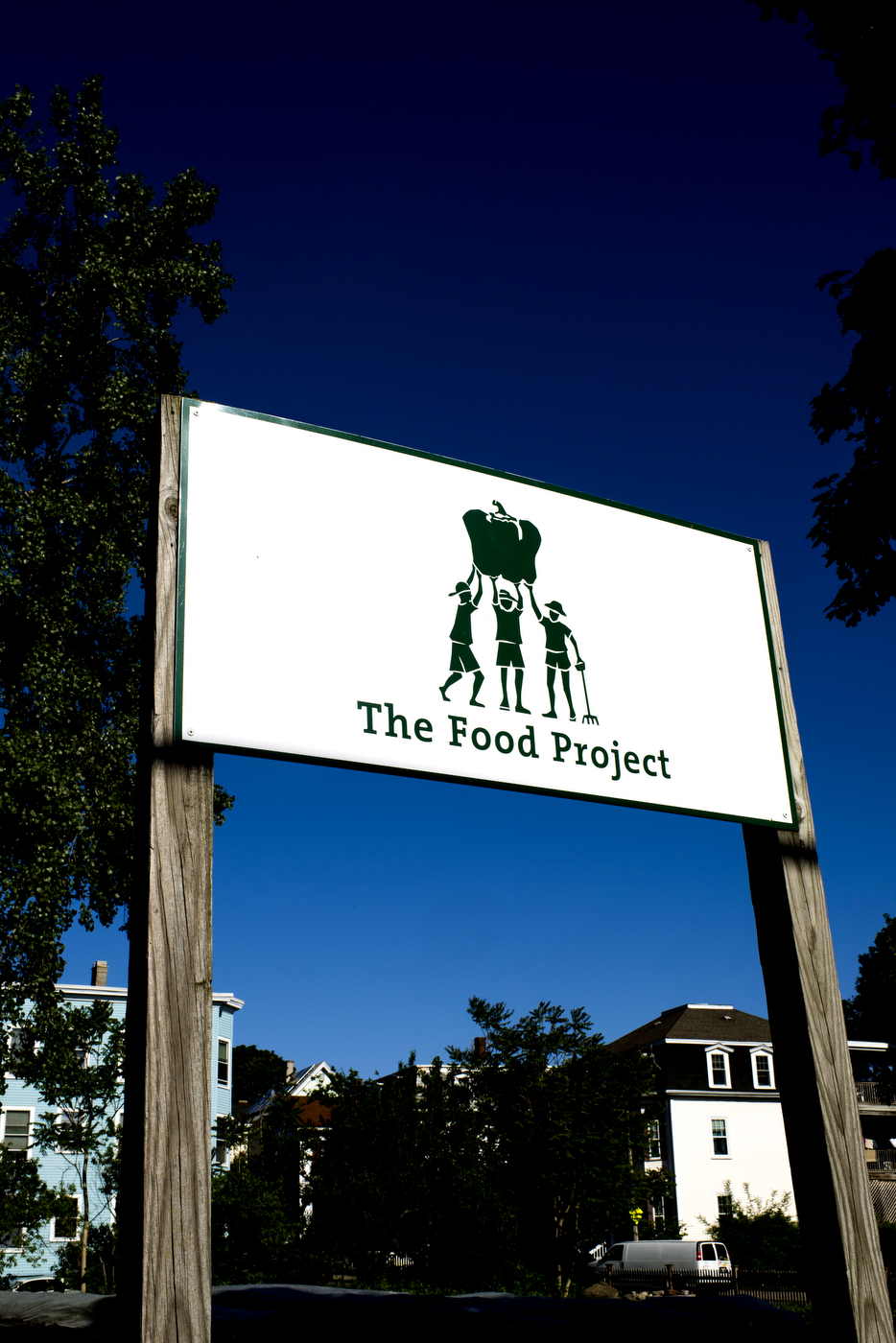
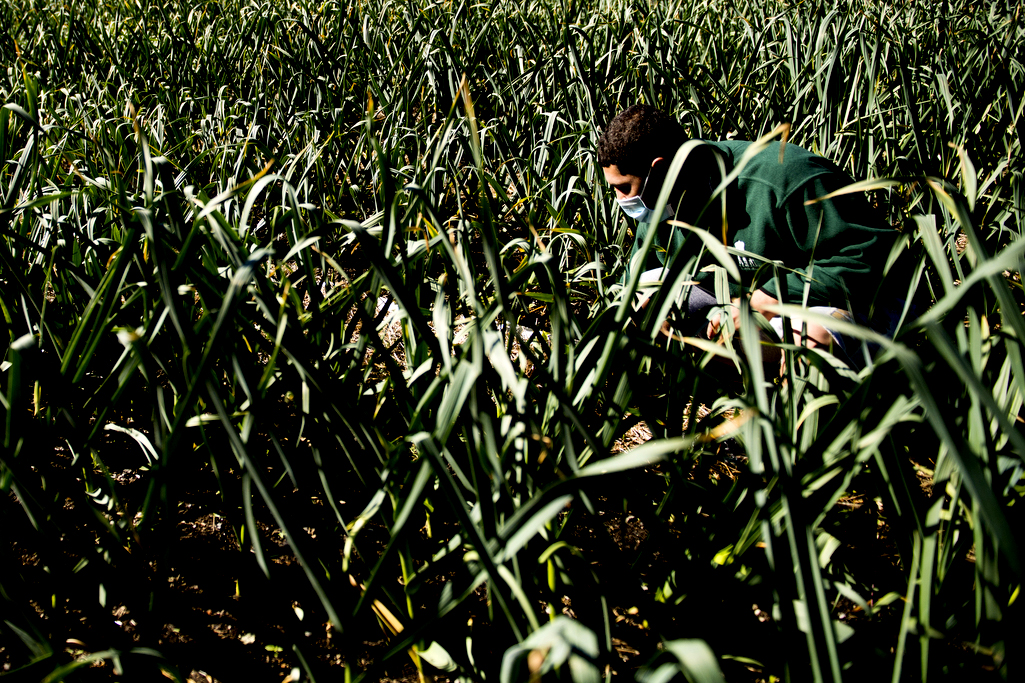
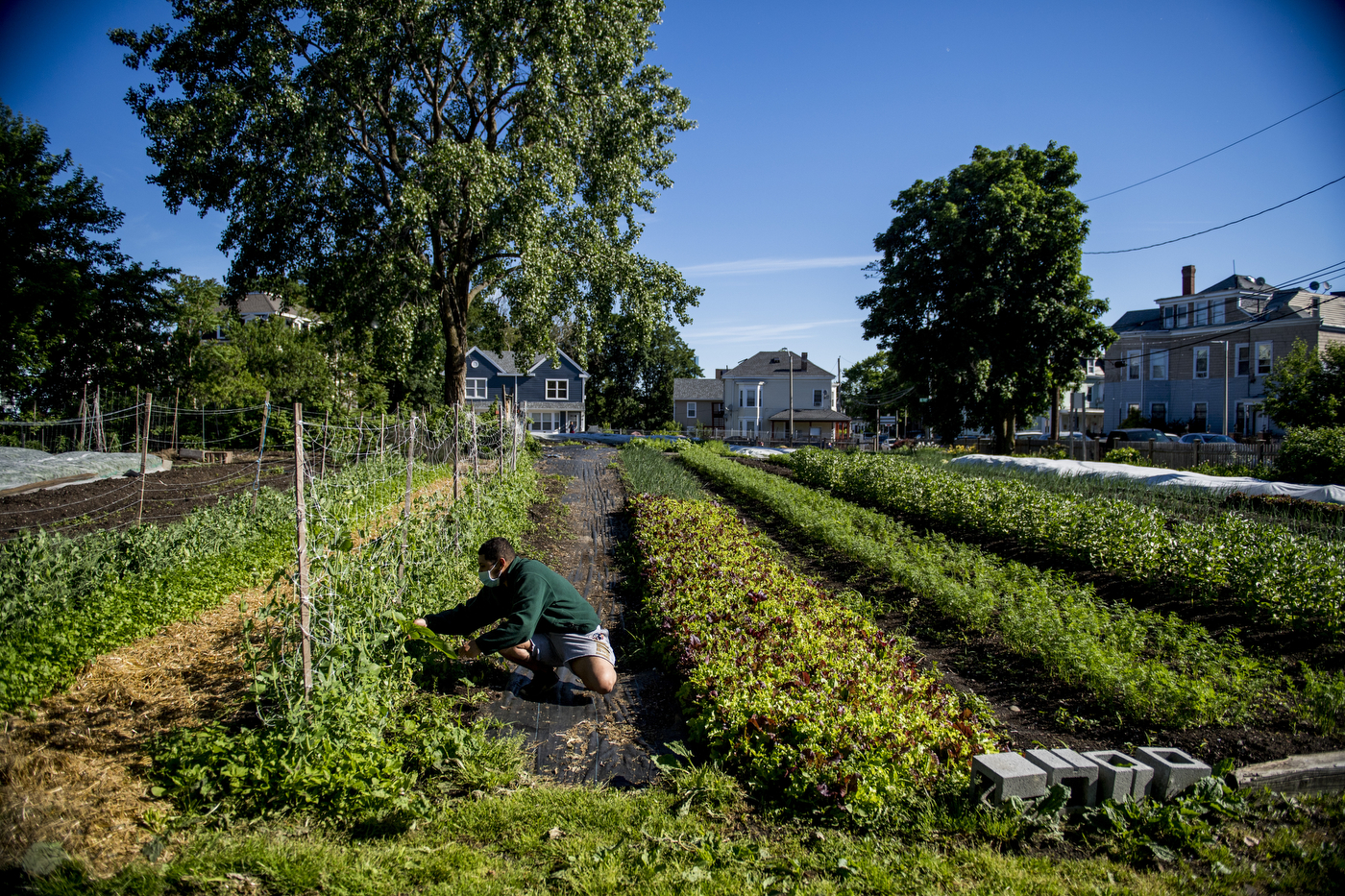
Aponte has been volunteering with the group for several years, and this summer, moved into a position as a worker at the Dudley Farm. Prior to that, he worked on co-op at Northeastern Crossing, a space at Northeastern for community programs, and this year received the Community Husky Award for his dedication to serving Boston residents.
The work is a way for Aponte to give back to his community and to help address an issue he saw firsthand growing up in Dorchester: food insecurity.
“I saw kids in my classes depending on that 12 p.m. lunchtime because they didn’t have anything else to eat all day,” he says. “People in my family and my neighborhood got really creative with meals, always just making the best of what they had. But food insecurity has always played a role in my life.”
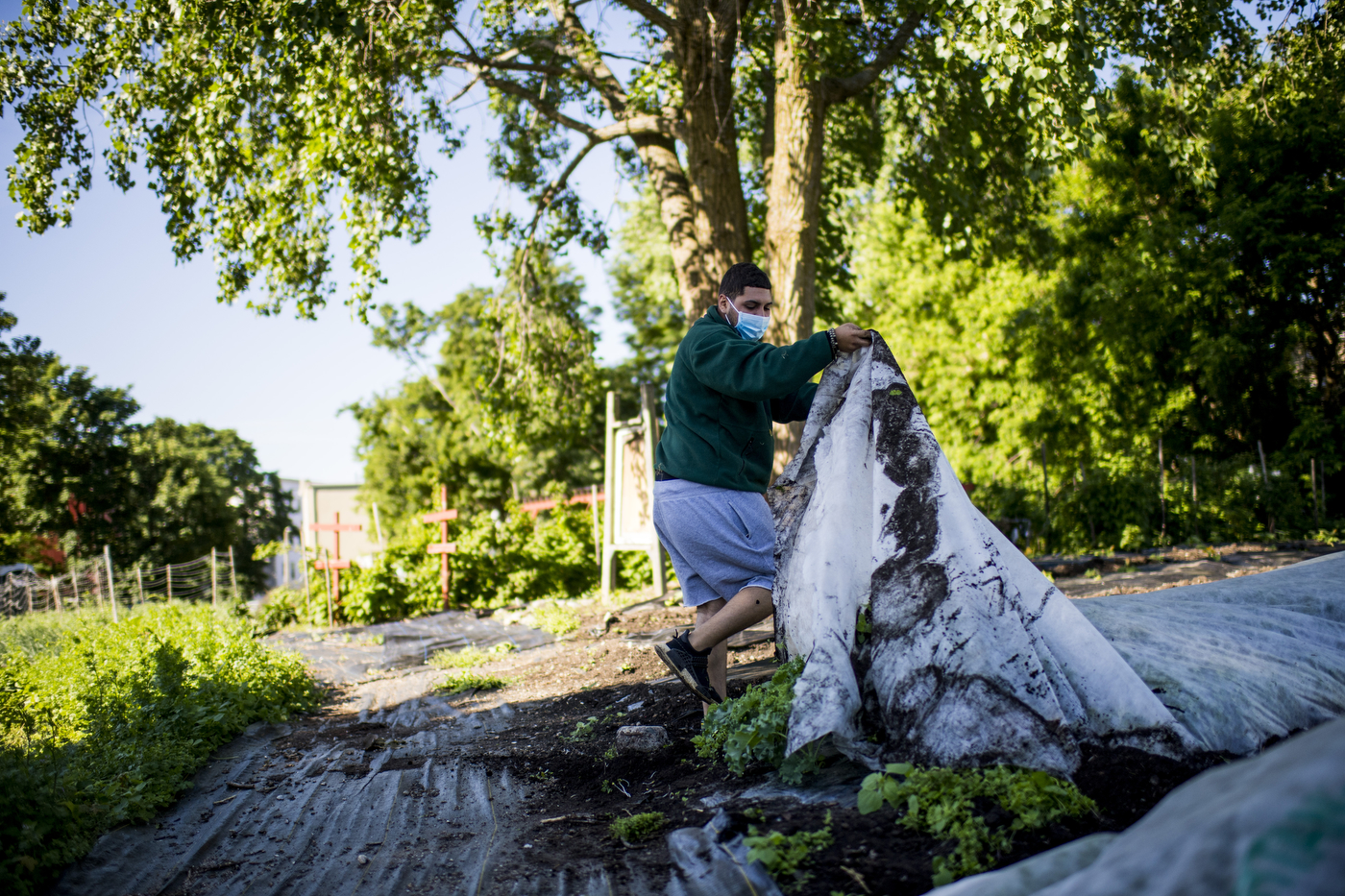
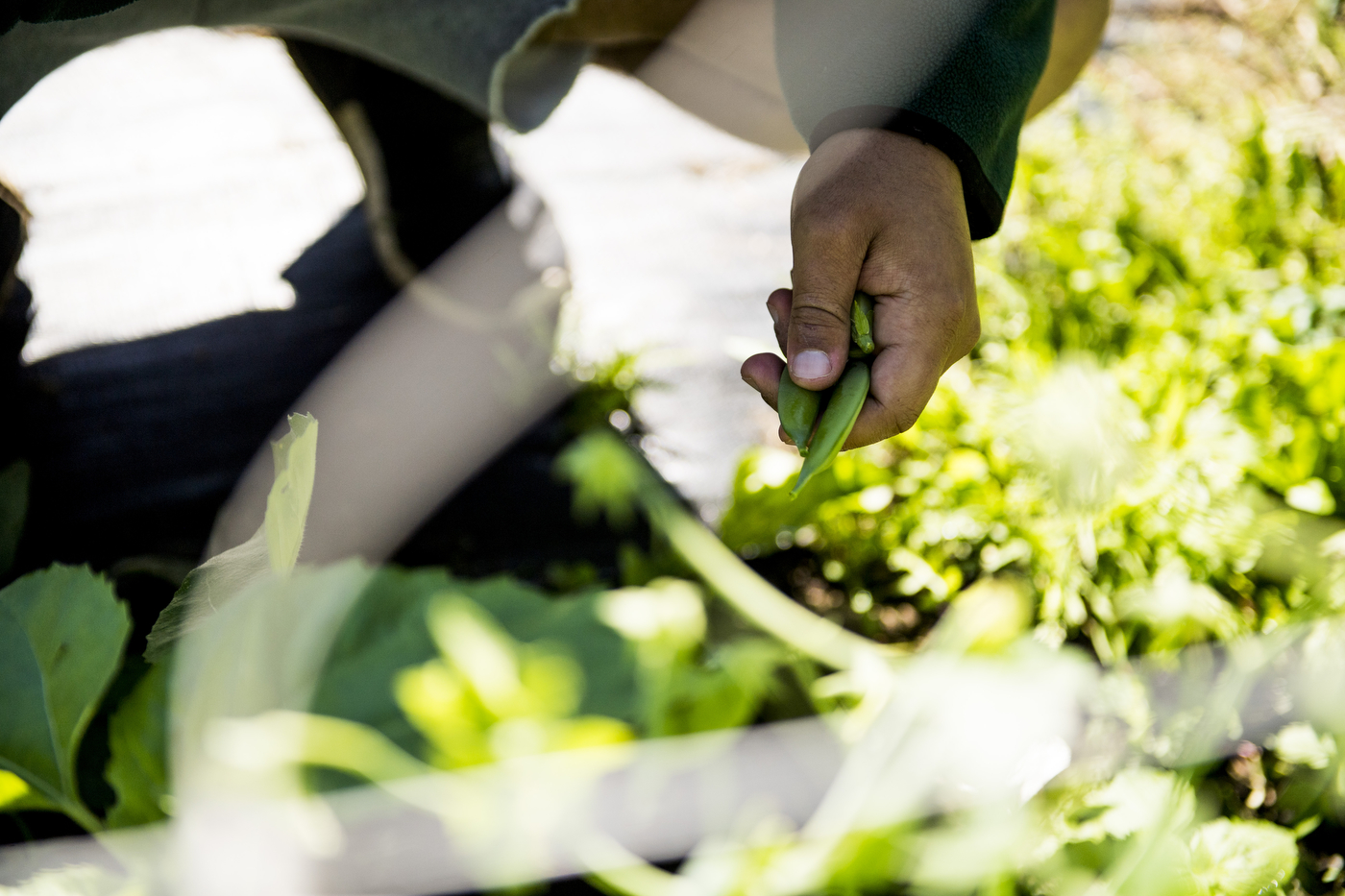
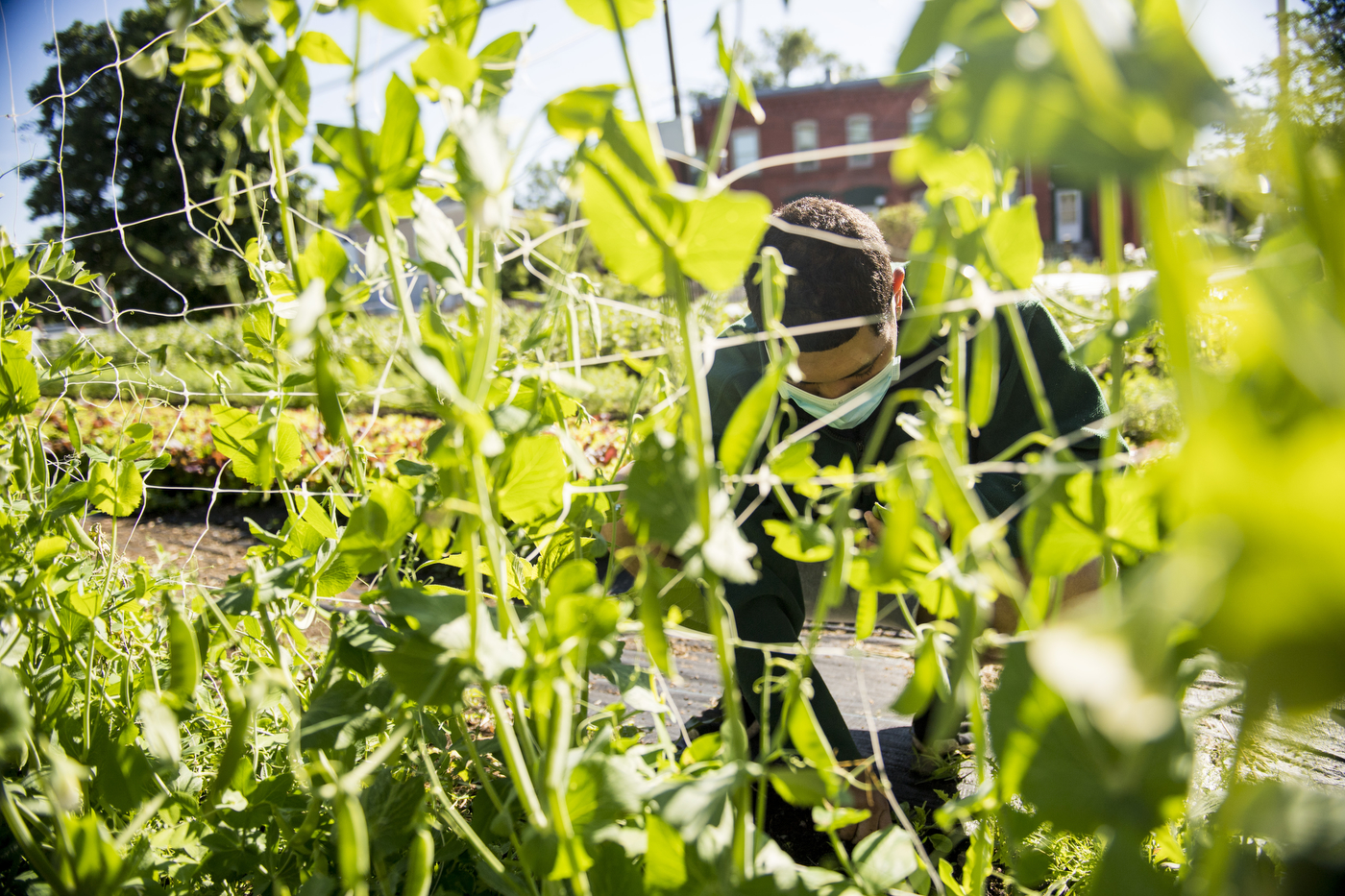
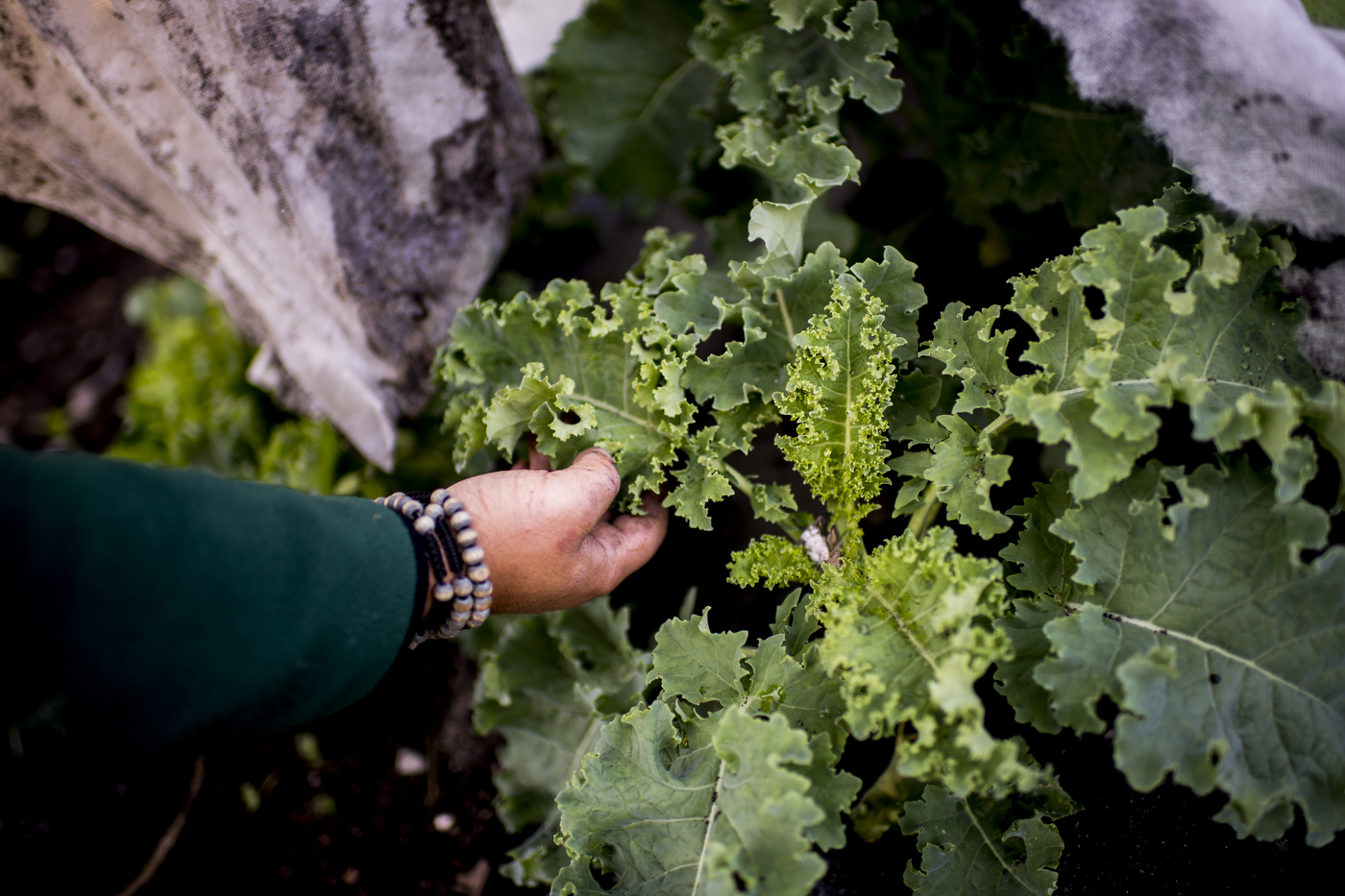
Aponte describes his neighborhood as a “food desert,” a term defined by the U.S. Food and Drug Administration as an area where at least a third of the residents live more than a mile away from the closest grocery store selling healthy and affordable foods. Food deserts are typically found in neighborhoods where the average income is low. Studies have found that food deserts occur disproportionately in communities where the proportion of racial minorities is high.
Aponte’s community of Dorchester is the largest neighborhood in Boston, and the most diverse. According to statistics from the Boston Planning and Development Agency, about 44 percent of residents are Black, a higher ratio than Boston at large, where 23 percent of residents are Black. Hispanic, Asian, and people from Pacific Islands account for 27 percent of Dorchester’s population, according to the same statistics. The median income in Dorchester is $47,200, less than that of Boston (which is $55,777).
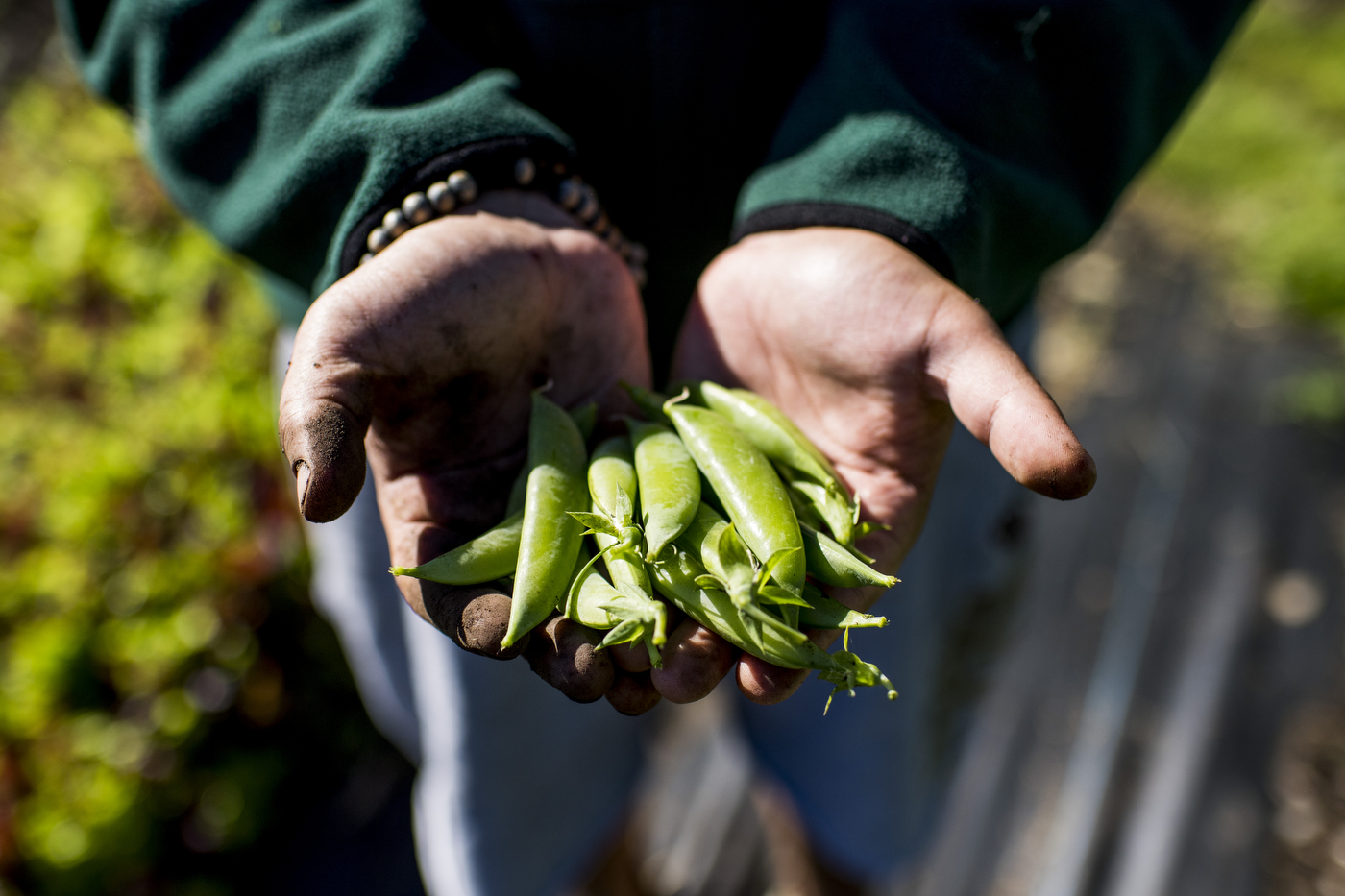
The community in which Aponte works at The Food Project includes a bit of Dorchester and a bit of Roxbury, another neighborhood populated largely by Black and Hispanic residents. The last U.S. Census shows that nearly 56 percent of Roxbury residents in 2010 were Black or African American, and nearly 30 percent were Hispanic or Latino. The median income in Roxbury in 2010 was $30,654.
“Speaking academically, I’m from an under-represented neighborhood,” Aponte says. “Un-academically? We call it the ’hood.”
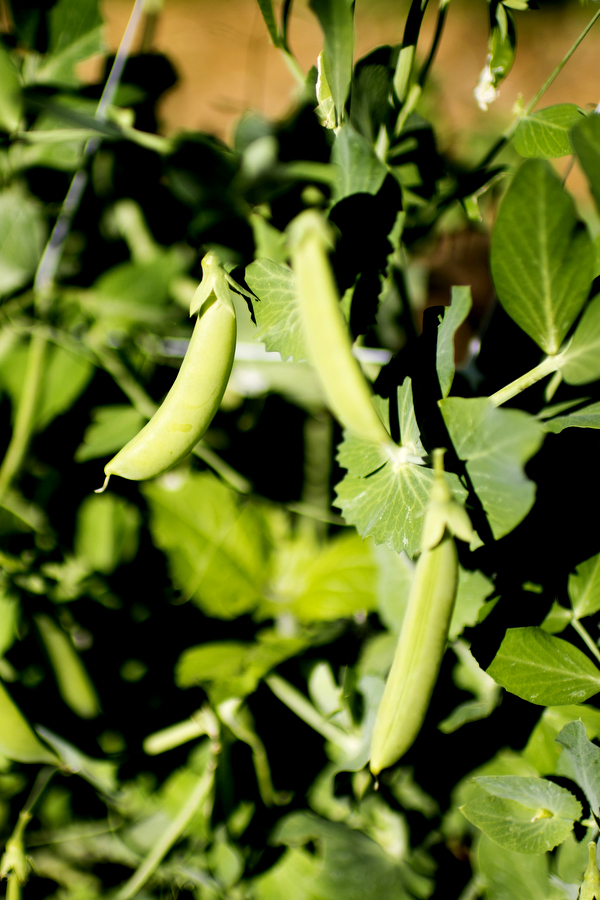
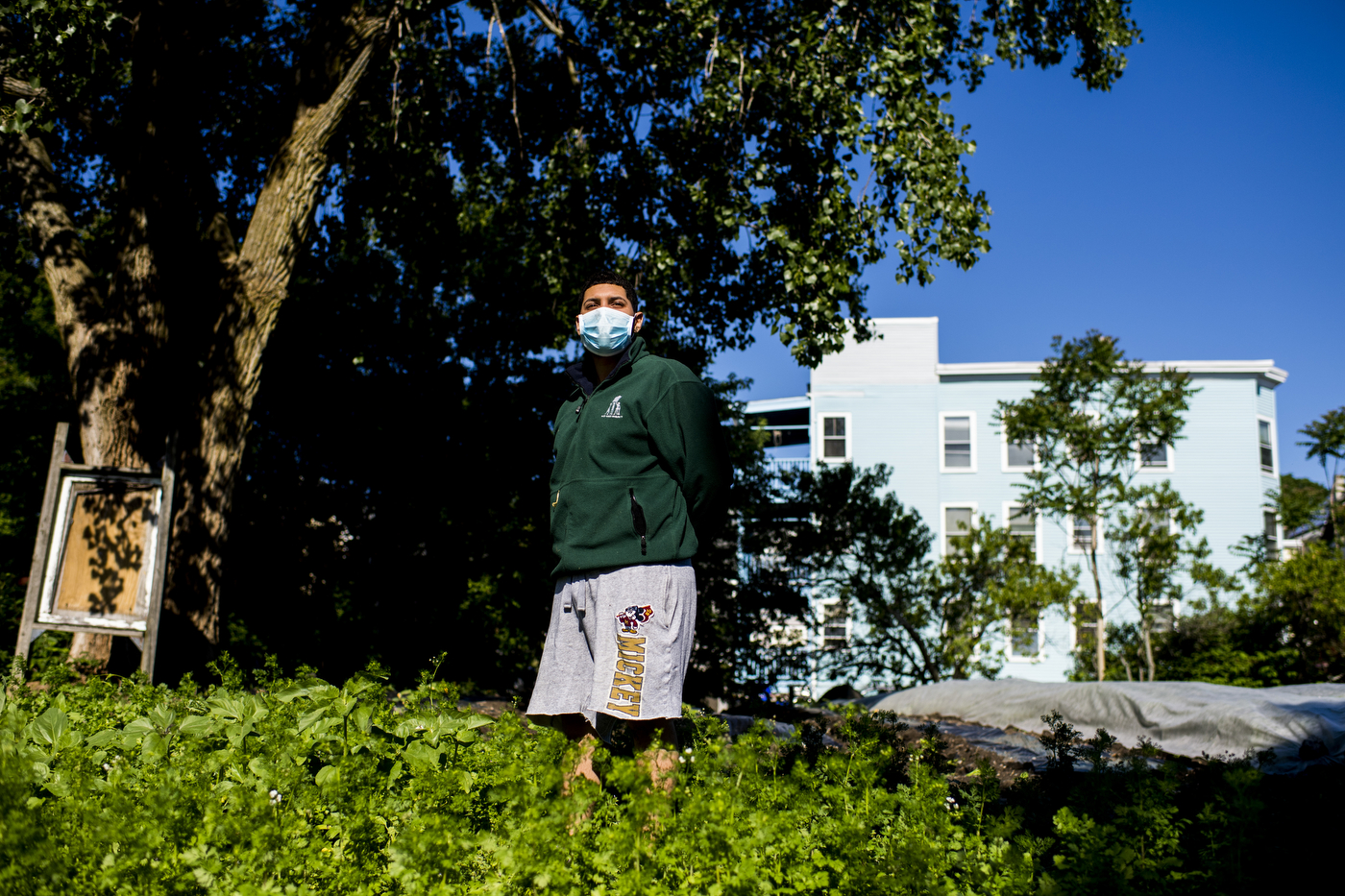
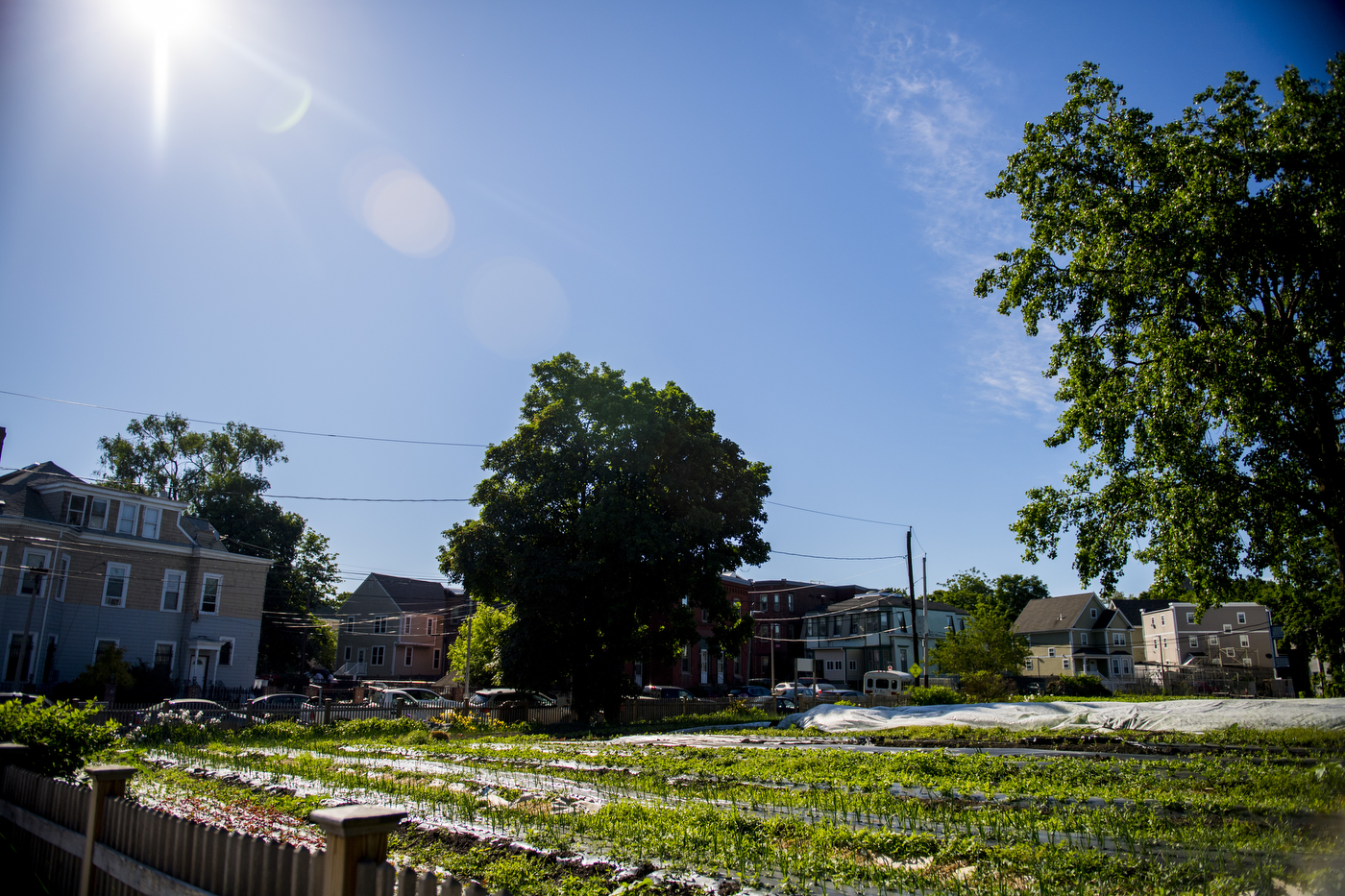
So, in addition to farming the food, Aponte helps sell fresh produce from The Food Project at farmers markets near the Massachusetts Bay Transit Authority station in Boston’s Nubian Square, as well as one at the Ashmont station in Dorchester. These farmers markets were among the first in Boston to accept vouchers from the Supplemental Nutrition Assistance Program, also known as SNAP, according to The Food Project.
Aponte says he helps deliver the produce to local restaurants, various YMCA locations, and shelters.
The Food Project also dedicates some of its farmland for use by local residents. On one of the first truly hot days this summer, Aponte paused his weeding to wave at a neighbor-turned-farmer.
The difficulty for families to get healthy, affordable food was only exacerbated by the COVID-19 pandemic, Aponte says, during which many adults have lost their jobs; children have had to stay home from schools; and families have faced (and continue to face) daunting medical bills for people who contracted the disease.
Aponte says it made his work at The Food Project all the more vital.
“Our work plays a part in sustaining this community with food that is organic, healthy, and affordable,” he says. “Knowing that I’m from this city and I’m helping out my neighbors, my friends, my family—that I’m contributing to allowing people to eat—that’s huge. That makes me super happy.”
Aponte says he knows that his work isn’t over when the summer ends. As an active member of community organizations such as Dorchester Not for Sale and Reclaim Roxbury, he plans to continue serving his communities well into the future.
“I’m majoring in religious studies, and a big part of religion is serving others,” Aponte says. “I know that when I graduate I want to serve others. But that could be being a flight attendant, continuing farming, being the garbage man, being a teacher; I just want to help lift up my community in any way possible.”
For media inquiries, please contact media@northeastern.edu.

